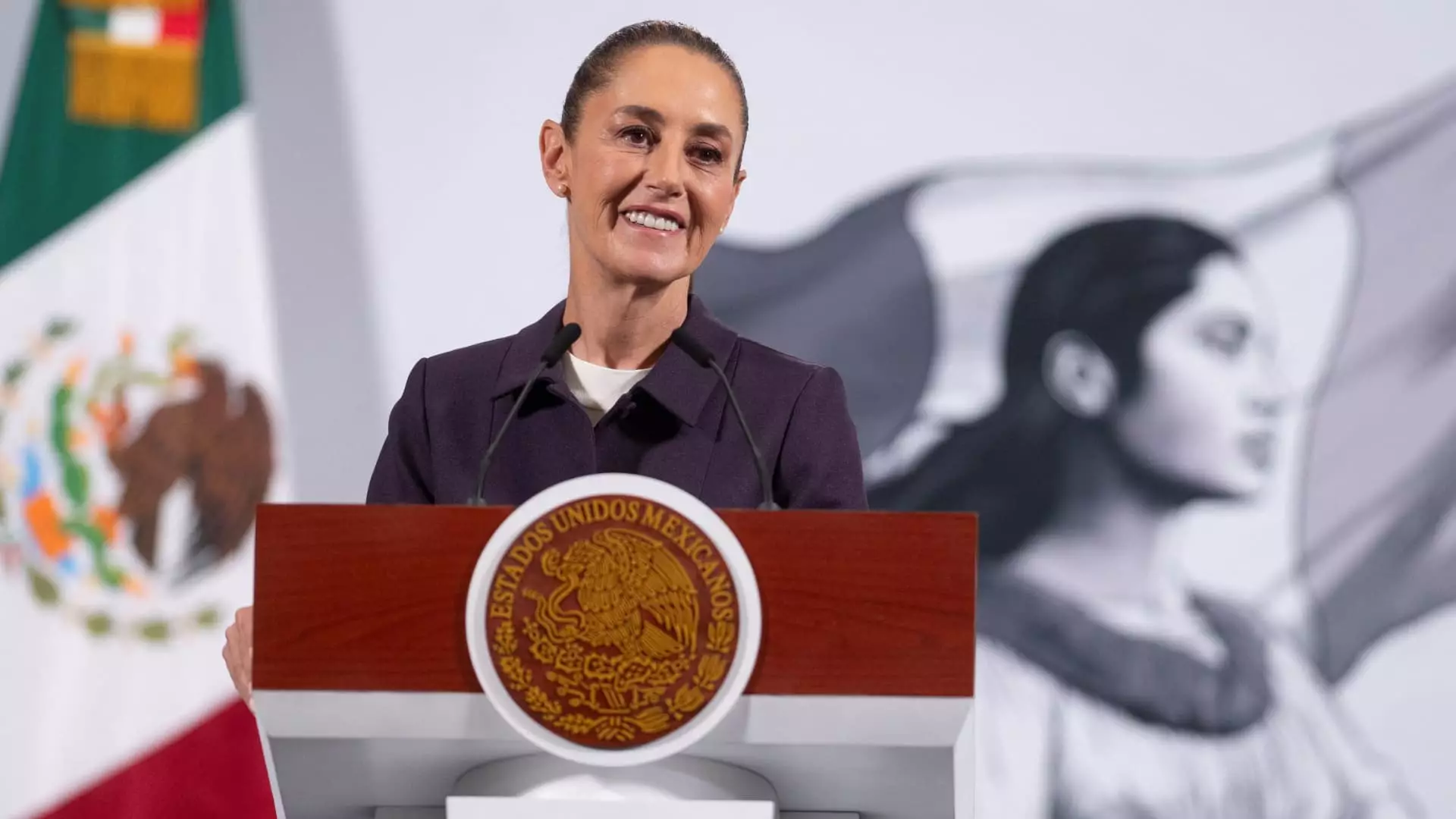In recent statements, President Donald Trump declared he would temporarily halt plans to escalate tariffs on Mexican imports, offering a 90-day window for negotiations. At first glance, this appears as a gesture of diplomatic flexibility or even a triumph of diplomacy. Yet, underneath this political veneer lies a complex web of strategic maneuvering that reveals far more than surface-level goodwill. The decision to pause tariff increases is less about mutual understanding and more about exerting economic leverage, emphasizing that for the U.S., trade policy remains an intensely strategic tool rather than a sincere effort to foster cooperative relations.
The Trump administration’s flirtation with tariffs has always been a double-edged sword. On one side, it threatens economic stability and ripples through global markets; on the other, it is a calculated move designed to force concessions. The 25% tariff on auto imports and the staggering 50% on metal commodities serve as economic pressure points wielded to extract political gains. These tariffs are not merely about border control or drug trafficking; they are a form of economic warfare, wielded to shape Mexico’s policies and, by extension, U.S. interests in the region.
What’s more troubling is the administration’s tendency to dress these aggressive tactics in diplomatic language, creating an illusion that these negotiations are about mutual benefit. The reality is that tariffs—especially when used as bargaining chips—undermine genuine cooperation and instead fuel a cycle of escalating tensions that not only affects Mexico but also jeopardizes the resourcefulness and resilience of the U.S. economy itself.
The Illusion of Progress and Manipulation of Trust
By framing the tariff delay as a favor due to “successful” talks with Mexican authorities, Trump projects an image of leadership and negotiation mastery. However, this is a calculated narrative. The move suggests that the U.S. recognizes Mexico’s vital role in the supply chain—particularly in manufacturing and agriculture—without genuinely resolving underlying issues. Instead, it continues to leverage these tariffs as a sharp stick, pushing Mexico into a corner where concessions are expected.
A notable feature of this approach is the vague mention of “trade barriers” that Mexico is allegedly agreeing to remove. This vagueness is not accidental; it operates as a strategic ambiguity designed to keep the U.S. in a dominant position while giving Mexico minimal room for genuine negotiation. This tactic masks unresolved disagreements under the guise of progress, maintaining leverage without committing to substantive policy shifts.
Furthermore, the inclusion of high-ranking officials from across the United States government on the call underscores that this is less about building lasting partnerships and more about showcasing a united front for domestic political consumption. Behind the scenes, these negotiations are often fraught with competing interests that rarely align with the public rhetoric of mutual benefit.
A Toxic Balance Between Power and Dependency
Mexico’s importance as a trade partner—particularly as a critical supplier of goods American consumers rely on—gives the U.S. an undeniable leverage point. However, this dependency is a double-edged sword. While the U.S. can impose tariffs to extract concessions, over-reliance on Mexican manufacturing exposes vulnerabilities that can backfire during economic crises or political instability.
The ongoing tariff threats diminish Mexico’s autonomy and sovereignty, turning a vital neighbor into a pawn in a broader power game. Such posturing risks eroding trust and fostering long-term resentment that could spill over into other areas of diplomacy and cooperation. It also undermines the possibility of forging genuine, equitable trade relationships rooted in mutual respect rather than coercion.
The administration’s emphasis on “getting to know each other” and “understanding the complexities” is a diplomatic smokescreen. The real issue is how economic dependencies and geopolitical power are used to manipulate international negotiations, often at the expense of genuine working relationships. In the long run, this approach undermines the very stability it purportedly seeks to secure, revealing a troubling tendency of prioritizing short-term political gains over sustainable diplomacy.


Leave a Reply